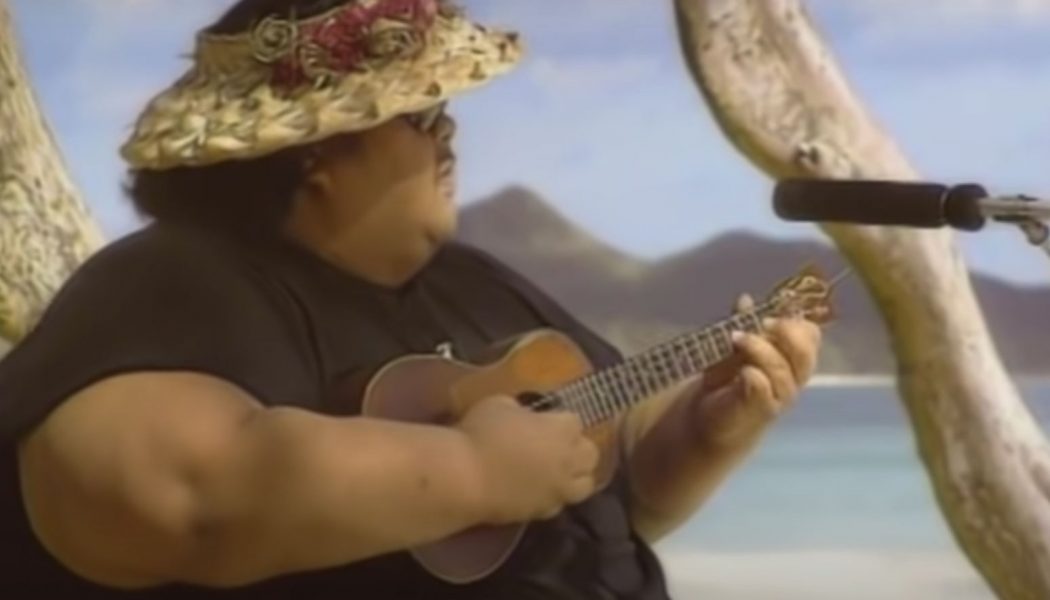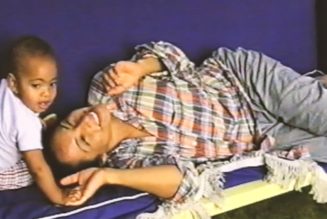
Of these six twice-honored songs, three originated in stage productions, a sign of how important stage productions were in creating hits in the early- to mid-20th Century.
Here’s a complete list of these twice-honored songs.
“Over the Rainbow”
Garland’s 1939 original recording of this Oscar-winning ballad was voted into the Registry in 2016. A medley by Kamakawiwoʻole, a Hawaiian singer and ukulele player, of that song and another classic, “What a Wonderful World,” was inducted this year. (Louis Armstrong’s 1967 recording of “What a Wonderful World” has not yet been voted into the Registry, but it likely will be.) Kamakawiwoʻole’s acoustic medley was first released in 1993, five years after it was recorded.
Composer: Harold Arlen; Lyricist: E.Y. Harburg
“Fascinating Rhythm”
Fred & Adele Astaire’s 1926 recording, which featured the song’s composer, George Gershwin, on piano, was inducted in 2005. A 1938 recording by Hawaiian steel guitarist Sol Hoʻopiʻi was inducted in 2011. The Gershwin brothers wrote the song for the 1924 Broadway show Lady Be Good, where it was performed by Fred & Adele Astaire — the most famous brother-and-sister team of the era — and Cliff Edwards.
Composer: George Gershwin; Lyricist: Ira Gershwin
“Tom Dooley”
Frank Proffitt’s 1940 recording and The Kingston Trio’s smash 1958 version were both inducted in 2008. The Kingston Trio’s version topped the Hot 100 for one week and won a Grammy for best country & western performance.
Composer/lyricist: Unknown
“Mack the Knife”
Armstrong’s 1956 recording and Bobby Darin’s 1959 smash were both inducted in 2015. Darin’s recording topped the Billboard Hot 100 for nine weeks and won the second Grammy ever awarded for record of the year. Kurt Weill and Bertolt Brecht wrote the song for their 1928 German music drama Threepenny Opera. The show, based on The Beggar’s Opera, first opened on Broadway in 1933.
Composer: Kurt Weill; Lyricist: Bertolt Brecht
“Brother, Can You Spare a Dime?”
Separate 1932 recordings by Bing Crosby and Rudy Vallee were inducted into the Registry as a joint entry in 2013. The song was first performed by vaudeville singer Rex Weber in the musical Americana, which ran from October to December 1932. The song has come to epitomize the desperation of the Depression Era. The lyric was written by E.Y. Harburg, who also wrote the lyrics to another iconic song from the 1930s, “Over the Rainbow.”
Composer: Jay Gorney; Lyrics: E.Y. Harburg
“Lift Every Voice and Sing”
Two recordings of this song, often called the Black national anthem, were inducted into the Registry in 2016. These versions, by Manhattan Harmony Four (1923) and Melba Moore (1990), were recorded nearly 70 years apart. Moore was joined on her recording by such R&B and gospel stars as Anita Baker, Bobby Brown, The Clark Sisters, Stephanie Mills, Take 6, Dionne Warwick, BeBe & CeCe Winans and Stevie Wonder. Moore’s single reached No. 9 on what was then called Hot Black Singles. Like “Fascinating Rhythm,” this song was written by a pair of brothers.
Composer: J. Rosamond Johnson; Lyrics: James Weldon Johnson
The National Recording Registry is a list of sound recordings that “are culturally, historically, or aesthetically important, and/or inform or reflect life in the United States.” The Registry is overseen by the National Recording Preservation Board, whose members are appointed by the Librarian of Congress.
The Registry ranks with the Grammy Hall of Fame as the most prestigious home for vintage recordings. The Registry originated in 2002. The Grammy Hall of Fame got underway in 1974. From 1995 to 2015, there was another such prize, the Songwriters Hall of Fame’s Towering Song Award, but that award has been on hiatus in recent years.









